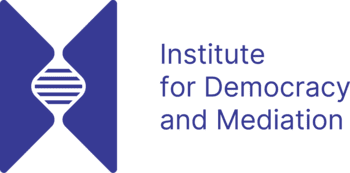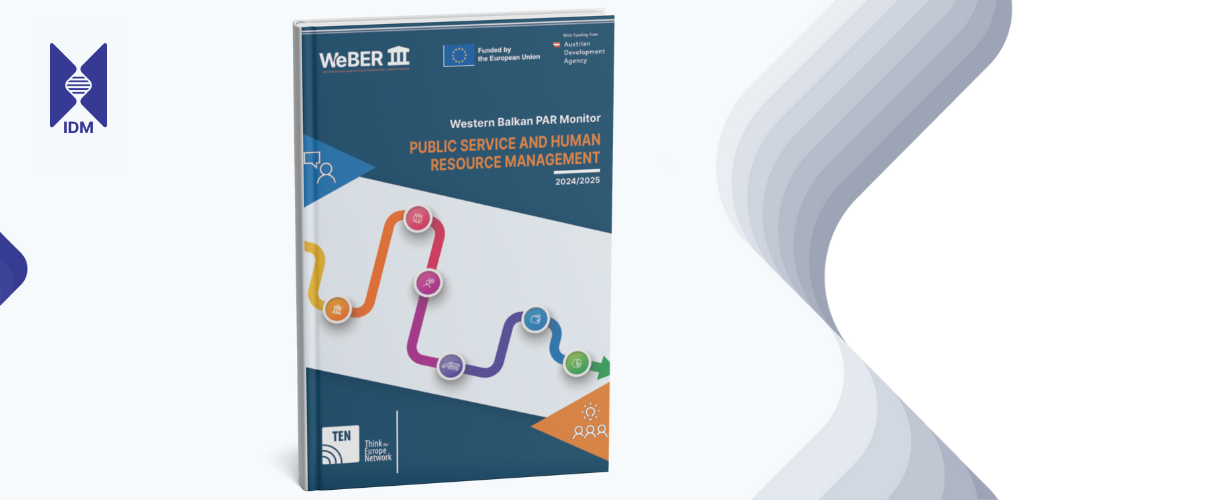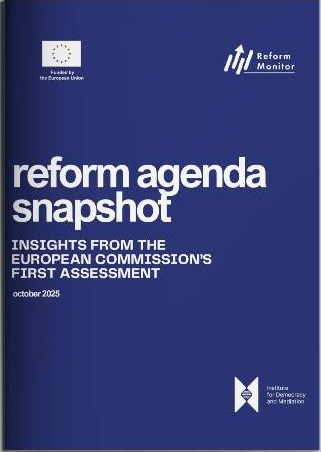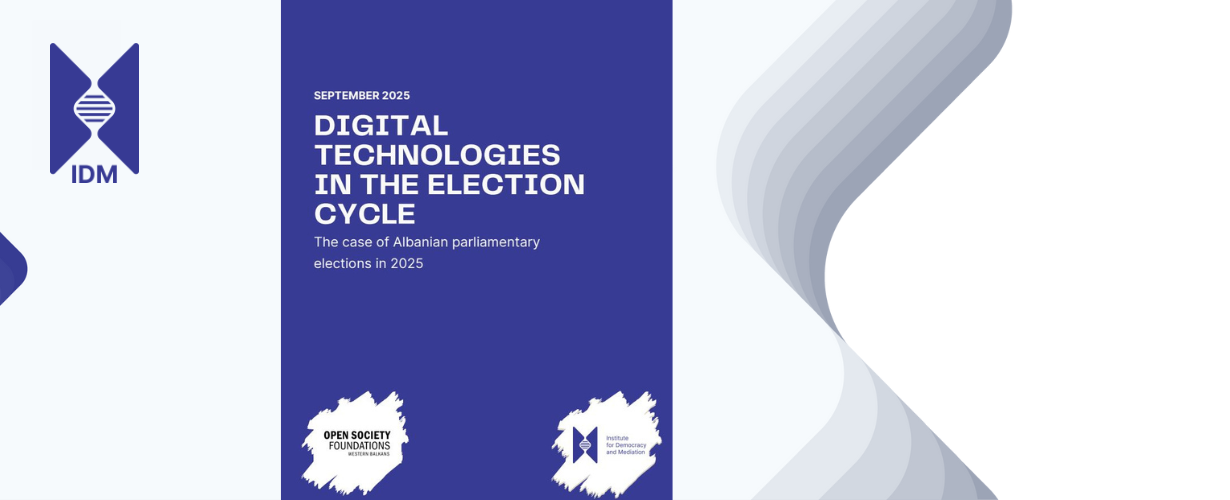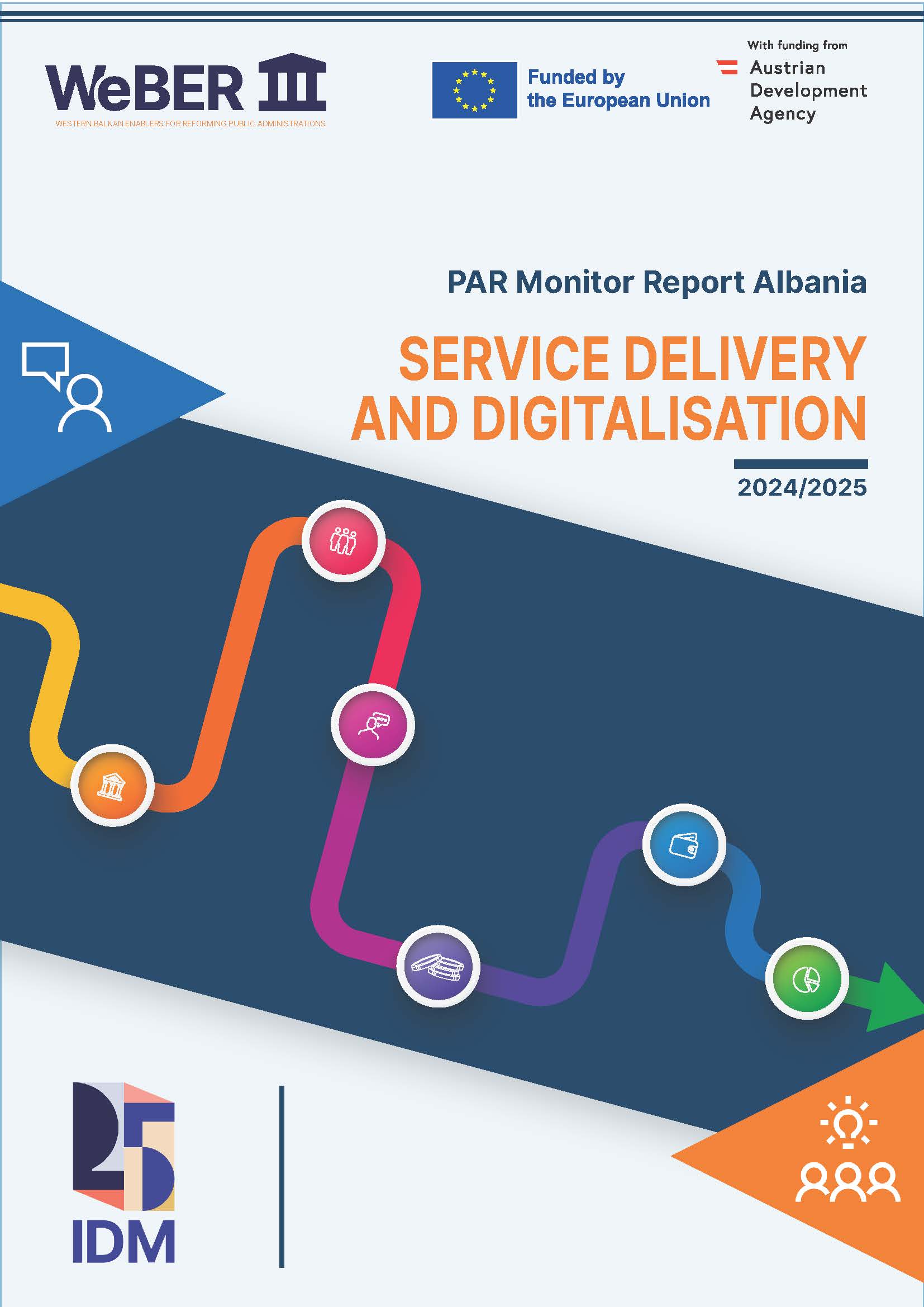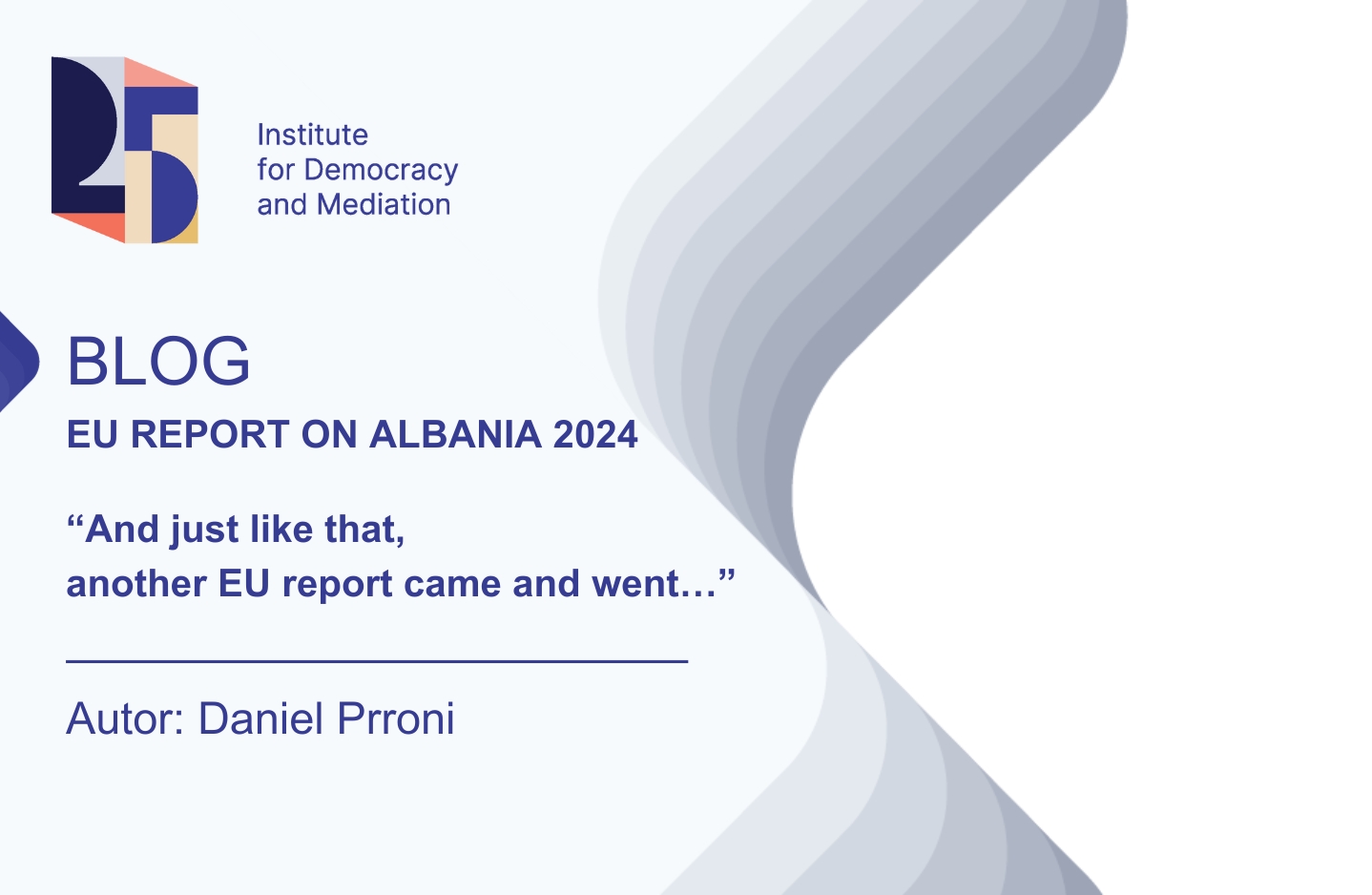And just like that, another EU report came and went…
Two years into the EU enlargement reboot, we’re seeing some movement. Since the negotiation framework was adopted in 2022, the screening process has concluded, and talks on the first cluster have begun. Both the EU and Albania are eyeing 2027 to wrap up negotiations and 2030 as the grand finish line.
But, is the pace of the process living up to these commitments?
EU’s country report states that Albanian authorities are ambitious, but ambition is one thing, results are another. In 2024, only four chapters show improved preparedness, while progress slowed in nine chapters compared to 2023. In fact, 81% of chapters display only “limited” or “some” progress in 2024, while a mere 9% show good progress. Overall, a full third of chapters remain at “some level” of preparation, 45% are at a moderate level, and only 21% show good readiness.
To put this year in perspective, last year’s report registered only one stagnant chapter, competition policy. Now, four chapters show no progress, including critical areas like freedom of expression.
Meanwhile, the pace of implementing recommendations remains slow, with nearly every chapter’s recommendations only partially fulfilled and some chapters showing no progress whatsoever. While it’s understandable that capacity constraints prevent all recommendations from being addressed within a year, in some cases, the root issue is merely a lack of political will. This is evident in the electoral reform where no results have been registered, only minor tweaks.
The report highlights some persisting issues in Albania’s political and institutional landscape.
Parliament remains overshadowed by the executive, struggling to provide oversight and divided by fierce political polarization. With a weak media and limited consultation with civil society, it’s clear that the executive is the only one behind the wheel of the accession process.
The report stresses Albania’s need to communicate better with the public on EU integration. At present, communication is weak, with stages of the process poorly explained, leaving the public confused and disengaged, even though they generally support EU integration. Transparency and consultation mechanisms are still not working properly, which has marginalized civil society’s role in the EU integration process.
Concerning freedom of expression, the report says there’s been “no progress”. Why not call it “backsliding”? Journalists are reporting worsening working conditions, while media ownership remains concentrated in business hands tied to political interests. At what point does this stagnation turn into backsliding? How long do we go without progress before the situation officially slips backward?
The report is also marked by some contradictions. For instance, one sentence lauds the government’s commitment to EU accession, and a couple of lines later, expresses concern over government policies’ alignment with EU standards.
On the fundamentals cluster, where negotiations have recently begun, the report points out that the vetting process for the judiciary is nearly complete. But more work is needed to solidify the justice reform. Ensuring judicial independence remains a challenge, particularly in fending off political influence and ensuring merit-based appointments. Without strong safeguards, there’s a risk the old habits will creep into the new judicial structures.
On the anti-corruption front, Albania’s ranges from some to moderate preparedness. The report acknowledges SPAK’s work in prosecuting high-level corruption and targeting judges with criminal elements exposed during vetting, but preventive systems are still feeble. A new anti-corruption strategy is in the pipeline, but implementation remains flawed, with concerning levels of corruption in sectors like customs, police, property management, and public procurement. Another inconsistency emerges here; the report acknowledges significant corruption in public procurement yet still assesses Albania as moderately prepared in this area.
The economic readiness assessment shows “good preparation,” but this fails to capture the full picture. Albania’s economic growth has been underachieving, and inequality among social groups is rising. Meanwhile, competition is limited both in terms of regulation and enforcement, as the competition authority lacks independence and resources, as noted in the report.
In sum, despite all the talk of rapid progress, the data and content tell a different story. Third-party indicators referenced by the report for the fundamentals cluster support this, as they reflect decline in democracy, governance, and the rule of law standings. Economic convergence with the EU average is progressing at a painfully slow pace, leaving Albania further behind the 2030 vision.
Albania spent 20 years trapped in EU accession limbo. Three years ago, there was talk of a “new momentum,” but the enthusiasm risks fading. It’s time to move from vague optimism to a serious question: how does this end?
A clear roadmap is needed. This means a frank assessment of Albania’s readiness, free of diplomatic tip-toeing around political elites’ sensitivities. Albania’s pro-EU civic actors, sidelined for far too long, deserve active engagement. If the EU and Albania are serious about meeting the 2030 goal, only an uncompromising commitment to these principles will get them there.
